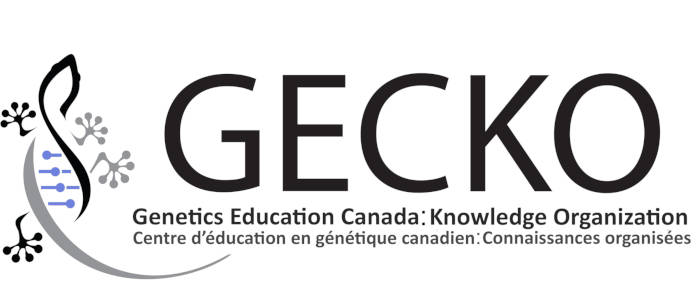| Bottomline: Myotonic dystrophy (DM1) is a genetic condition that affects many parts of the body e.g. muscles, heart, eyes, bowels and brain. It is autosomal dominant meaning that an individual needs to only inherit one abnormal gene change from one parent to be at risk for DM1. When the symptoms start and how serious those symptoms are varies from person to person, even within the same family. There are three kinds of genetic test results: normal (negative), premutation and positive (expanded). |
Download the full PDF here. (Sept 2025)
What does the genetic test result mean?
DM1 is caused by an increase in the number of repeats of the genetic code ‘CTG’ within the DMPK gene. The genetic testing result reports the number of CTG repeats (or repeat expansions) detected on both copies of the DMPK gene. There will be two expansion numbers reported as there are two copies of the gene, one inherited from each parent. The number of repeats is interpreted as:
- Normal (less than or equal to 49 CTG repeats). If both repeat expansions are within this range, an individual is not at increased risk for DM1. If there was clinical suspicion of DM1, this diagnosis is unlikely.
Next steps: Monitoring for symptoms of DM1 is not recommended. If there is a family history of DM1, other relatives may still be at increased risk for DM1 and should speak with their primary care practitioner about genetic testing and assessment. Individuals who had genetic testing due to DM1-related symptoms may wish to be referred to a local genetics centre to determine if additional genetic testing is indicated.
- Premutation (35-49 CTG repeats). If one repeat expansion is within this range (and the other normal), an individual is not at increased risk for DM1. If there was clinical suspicion of DM1, this diagnosis is unlikely. However, this individual’s children have a higher chance of developing DM1 because the CTG repeat can increase in size when passed on from parent to child.
Next steps: Monitoring for symptoms of DM1 is not recommended. Consider referral to a local genetics centre to discuss what the results mean for this individual, family planning and their relatives.
- Positive (expanded, greater than or equal to 50 CTG repeats). If one repeat expansion is within this range (and the other normal), an individual is at increased risk for symptoms of DM1 and will develop symptoms of DM1 during their lifetime, or this confirms a clinical diagnosis of DM1. This individual’s siblings and children have a 50% chance to inherit DM1. The number of CTG repeats cannot predict the precise age of when symptoms start or how serious they will be. Results are generally interpreted as:
- 50-~150 repeats can cause mild DM1. Individuals may only have myotonia (muscles that do not relax as they should), cataracts, cardiac arrythmia and type 2 diabetes. Age of onset can vary among adults. Generally, these patients have fewer symptoms and get them later in life
- ~100-1000 repeats can cause classic DM1. Symptoms usually start in early adulthood and are more severe than mild DM1.
- Greater than 1000 repeats is expected to cause congenital DM1. This is when symptoms are present before or at birth, are severe, associated with learning difficulties and can be life-limiting.
Next steps: People living with DM1 need a coordinated system of care. Consider referral to a neuromuscular specialist, neurologist or rehabilitation specialist for assessment and follow up. Consider referral to a local genetics centre to discuss what the results mean for this individual, family planning and their relatives. If surgery is planned, additional precautions may be taken and surgeons should be made aware of results. Consider a medical alert card. If not already done, consider arranging the following baseline tests while waiting for specialist referral:
- Cardiac screening: Electrocardiogram (ECG/EKG) and echocardiogram
- Ophthalmologic (eye) exam to assess for cataracts
- Diabetes screening: Fasting glucose and Hemoglobin A1C
- Thyroid function screening: Thyroid-stimulating hormone and Free T4
Individuals should also: (i) receive information about patient organizations (ii) know about the risk of anaesthetics and medications and (iii) understand the importance of regular exercise and other healthy lifestyle interventions.
Other result types (e.g. both positive) would be rare unless there is a family history consistent with DM1 on both sides of the family. Genetic counselling would be recommended.
Resources
- Muscular Dystrophy Canada: https://muscle.ca/
- Myotonic Dystrophy Foundation: https://www.myotonic.org/
- Genetics Education Canada: Knowledge Organization geneticseducation.ca > Resources for clinicians >Neuromuscular
- Find your local genetics centre at https://www.geneticseducation.ca/find-your-local-genomics-expert/canadian-clinics or the Canadian Association of Genetic Counsellors https://www.cagc-accg.ca/
This resource was developed by Genetics Education Canada: Knowledge Organization with support from Muscular Dystrophy Canada.




